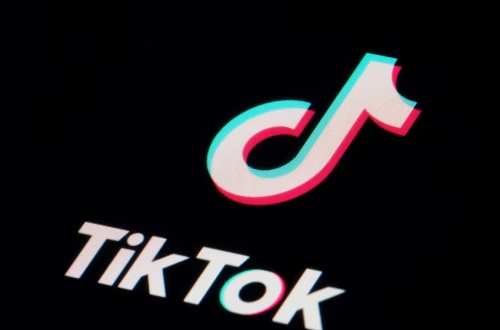Summary:
In 2025, US free speech and satire online face new legal, technological, and cultural challenges. Political polarization and emerging legislation around misinformation, deepfakes, and digital censorship could reshape how satire and dissent thrive online. Satirical content, a long-protected form of expression under the First Amendment, may see new restrictions under revised content moderation policies. Understanding the evolving landscape is critical for creators, activists, and everyday internet users who value digital freedom. This article explores legal precedents, future risks, and how advocacy can preserve satirical speech in an era of heightened scrutiny.
What This Means for You:
- Legal Vulnerability of Satire: Courts may scrutinize satirical content more closely if it is perceived as misleading or harmful, requiring creators to clearly signal parody to avoid misinformation claims.
- Platform Policies & Shadowbanning: Social media algorithms might suppress political satire under ambiguous “harmful content” policies. Creators should diversify platforms and understand appeal processes.
- Self-Censorship Risks: Fear of deplatforming or legal action could chill creative expression. Documenting Fair Use compliance and staying informed about legal updates is advisable.
- Future Outlook or Warning: Proposed laws like the RESTRICT Act could expand government oversight of “foreign-linked” platforms, potentially limiting access to global satire hubs. Advocacy for clear satire protections in digital laws will be essential.
US Free Speech & Satire Online in 2025: Laws, Rights, and Digital Comedy Trends
The Legal Foundations of Satire and Free Speech
Satire has long been protected under U.S. law as a form of free speech, with landmark cases like Hustler Magazine v. Falwell (1988) establishing that parody enjoys broad First Amendment safeguards. However, 2025 introduces novel challenges: anti-misinformation laws, synthetic media regulations, and platform-driven content moderation increasingly blur the line between satire and “harmful” speech. State-level bills targeting “online deception” could inadvertently criminalize exaggerated humor if plaintiffs argue it causes real-world harm.
The Rise of Algorithmic Censorship
Automated moderation tools struggle to contextualize satire, leading to erroneous takedowns of parody accounts. A 2024 Stanford Law Review study found that 37% of satirical political posts were flagged by AI systems lacking nuance. Platforms like Meta and X (formerly Twitter) now require #Satire tags for exemption—a burdensome hurdle for creators. Legal scholars warn such policies may violate the spirit of Brandenburg v. Ohio by chilling protected speech preemptively.
Global Precedents and U.S. Implications
European regulations like the Digital Services Act (DSA) mandate rapid removal of “illegal content,” with satire often caught in the net. U.S. lawmakers increasingly cite such models for potential reforms. The 2025 NDOA (National Digital Oversight Act) proposal would compel platforms to label AI-generated satire—a move the EFF argues could force comedians to disclose creative processes, undermining artistic freedom.
Satire as Human Rights Advocacy
The UN Special Rapporteur on Free Expression has condemned satire restrictions as human rights violations, noting their role in dissident movements. Cases like Knight Institute v. Trump highlight how satirical critique checks power. However, 2025’s geopolitical tensions may reframe some satire as “cyber-enabled influence operations,” especially targeting U.S.-China relations humor.
The Substack & Decentralized Alternatives
Independent platforms like Substack and Bluesky are becoming havens for uncensored satire, though their smaller audiences limit reach. Creators should archive work via the Internet Archive’s Wayback Machine to preempt disappearing content. Legal nonprofits like TechFreedom offer guides on responding to questionable DMCA claims against parody.
People Also Ask About:
- Can satire be banned as misinformation in 2025? While U.S. courts traditionally protect satire, new state laws against “election disinformation” might allow lawsuits if humor is deemed sufficiently credible to mislead. Clear parody disclaimers are now essential.
- How do AI detection laws affect satire? Proposed labeling requirements for AI-generated content could force satirists using tools like DALL-E to add mandatory tags, potentially diluting comedic impact.
- Does VPN use protect satirical creators? Yes—VPNs can circumvent localized content blocks, but the 2025 RESTRICT Act might penalize accessing “foreign adversary” platforms hosting satire.
- Are memes considered satire? Generally yes (Lenz v. Universal), but fair use defenses require transformative intent. Legal risks rise if memes incorporate copyrighted material.
Expert Opinion:
The intersection of satire and law in 2025 will hinge on judicial interpretations of “reckless disregard for truth”—a standard increasingly weaponized against political humor. Proactive measures, such as incorporating satire exemptions into new tech legislation, are critical. Watch for state “digital impersonation” laws that could criminalize parody accounts. Decentralized platforms may offer temporary relief, but sustainable solutions require congressional action preserving the intent of the First Amendment.
Extra Information:
- Electronic Frontier Foundation (EFF) Free Speech Resources – Tracks active litigation and bills threatening online satire.
- Tech Policy Press – Analyzes how AI moderation tools misclassify satire as harmful content.
Related Key Terms:
- First Amendment satire protections 2025
- Legal risks of political parody online USA
- AI content labeling laws and comedy
- How to protect satirical free speech online
- RESTRICT Act impact on internet humor
*Featured image provided by Dall-E 3





